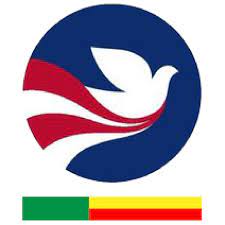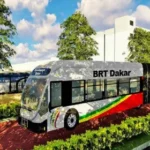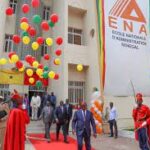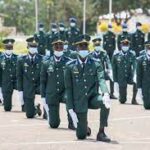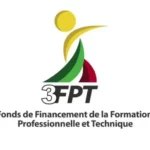Peace Corps Bénin recrute 01 Volontaire en Extension de la Santé
Peace Corps Bénin
Senegal
Health Extension Volunteer
Project Description
As a Community Health Support Agent, you will work with your local counterpart to expand access to community health programs essential for the communities in which you will live and work. You will support Senegalese Community Health Workers by assuming the role of a co-facilitator, co-organizer, and motivator for your community’s health outreach. You are not expected to be a health expert, rather your role will be to work with and support local trainers.
Peace Corps Senegal’s Community Health Project aims to support a reduction in maternal, newborn, and child mortality in Senegal through the increased use of improved community health services by local populations, especially at the household level.
- Advertisement -
Equitable access to quality health services is a national priority of the Government of Senegal, which includes community health as a pillar of the national health policy operationalized by the National Community Health Strategic Plan (NCHSP). Yet, the formal health system in Senegal struggles to meet all the health needs of the population, particularly those living in remote and/or underserved areas. Consequently, the Ministry of Health and Social Action (MSAS) is promoting community health to improve access to basic health care and prevention services for the majority of the population. The MSAS created a network of basic health units called health huts, and each health hut is usually run by two Community Health Agents (CHAs). CHAs are volunteers from the community who have received training to provide basic health care. They are supported by Community Health Educators (CHEs) who oversee educating the community on disease prevention and the adoption of healthy practices. The CHAs and CHEs together compose the area’s Community Health Workers (CHWs).
The Community Health Project seeks to
(1) support CHWs to deliver quality health care and prevention services;
(2) improve utilization of community health services and uptake of healthy behaviors, particularly among pregnant women and mothers and
- Advertisement -
(3) promote early care seeking behaviors for common childhood illnesses.
The Community Health Project uses a two-pronged approach:
• Support CHWs to improve their skills and strengthen their capacities to act as first responders at the community level.
• Support pregnant women, mothers, and caretakers to adopt evidence-based healthy behaviors.
Volunteers work with their Senegalese counterparts to carry out the following activities:
• Organize capacity building activities for CHWs and health systems strengthening activities. These can consist of trainings, workshops, and/or coaching.
• Implement skill building and knowledge acquisition activities that will target youth who will in turn serve as informal CHE in their community.
• Conduct educational and awareness raising activities targeting pregnant women, mothers, and caretakers of children under 2 for the utilization of MCH services and adoption of recommended health behaviors.
Volunteer activities and work venues may need to change to respond to community needs and agency requirements. Flexibility and adaptability are important for Volunteer service, especially as we navigate a world with COVID.
Peace Corps Senegal includes gender equity and empowerment efforts throughout all our work. During your service, you will work with local partners to find locally appropriate ways to work with community members to promote gender-equitable norms and increase girls’ and women’s sense of agency.
As an actor in the development of Senegal, and part of the wider Peace Corps effort to share our story with our counterparts and host government as well as to bring that story home to the US, you will monitor and report on your work activities throughout your service.
COVID-19 Volunteer Activities
As a Volunteer, you will be trained in how to best protect yourself from COVID-19 exposure and understand the impact of and steps to reduce stigma related to COVID-19. You may also have the opportunity to engage with your community on implementing or enhancing COVID-19 mitigation activities, such as COVID-19 prevention and risk reduction strategies including social distancing, hand washing, mask wearing, addressing myths and misconceptions related to these practices, and vaccine hesitancy. Activities will be tailored to address the COVID-19 circumstances in the communities where you will serve.
Required Skills
Qualified candidates will have an expressed interest in working in the health sector and one or more of the following criteria:
• Bachelor of Arts/Bachelor of Science degree in any field
OR
• 5 years’ professional work experience
Desired Skills
• Experience and/or interest in maternal and child health
• Experience in public health and positive youth development
• Experience in capacity building through training/coaching
• Experience with community organizing and/or behavior change
Required Language Skills
There are no pre-requisite language requirements for this position.
The dominant languages in Senegal are Wolof and Pulaar, but there are many other smaller language groups as well. You will receive intensive training in the most common language of the village where you will be based and you will attain a proficiency level in that language by the time you complete your Pre-Service Training. Most of your work will be carried out in a local language.
Peace Corps Senegal does not train in French, preferring to focus on the primary language that the Volunteer will speak. French language skills are however, very useful in Senegal, particularly when traveling or when working with people from other parts of the country. You are encouraged to learn as much French as possible prior to arrival in country as French language learning is not provided in Senegal by Peace Corps.
Living Conditions
Most Peace Corps Senegal Volunteers live with a host family; however, some volunteers will live in independent housing and will be connected with a resource family. Sharing meals and camaraderie with your host/resource family will help you to understand the culture, enjoy the security of family life and learn the language of your community. When living with a host family, Volunteers have a private room/hut and private latrine/toilet within the family living environment. Volunteers with independent housing will have a basic house or apartment with cooking facilities and toilet and bathing area.
Many Volunteer homes do not have access to running water or electricity. Water is collected at a community pump or well. Cell phone coverage in Senegal is fairly good and you will have a Peace Corps issued cell phone or may use your own. Internet is becoming more widely available, although it is still not available everywhere. Internet coverage is more commonly available in larger towns and cities.
It can be very useful to have a laptop and a smart phone, but you may not wish to invest in the most expensive model. The dust, heat, and humidity of Senegal are hard on electronics. Cheaper, used and/or hardier models may be better options. To support all Volunteers to have the basic tools necessary for their work Peace Corps will provide an optional 1-time grant as part of the settling-in allowance at the end of PST to buy a simple laptop/tablet (based on local market availability).
Senegalese dishes consist of a staple of rice, millet, or corn with vegetable sauces and sometimes with fresh or dried fish. Meat is also available but more of a rarity. Access to produce is seasonal and variety is often limited by geographic locations. Determined vegetarians are able to make arrangements with their host families to maintain their diet, but this usually further decreases variety.
Senegal enjoys a good primary road system, but transportation remains a challenge. You will usually travel in crowded, shared taxis and buses over rough roads, particularly outside of urban areas. You will travel by bike – PC provided – or on foot or donkey/horse cart for shorter trips within your community and to nearby towns or villages. In all cases, Peace Corps Volunteers are expected to observe PC Senegal’s transportation policy.
Senegalese pride themselves on being well dressed. A neat and dignified appearance will say a lot about your desire to be accepted as a colleague. During Pre-Service Training, the dress code is business casual. There is a lot of beautiful cloth available in Senegal, and many Volunteers have clothing made by local tailors. Volunteers should not wear clothing that is overly tight, and clothing should always come at least as low to cover the knees. Long shorts, covering the knee, are acceptable for sports, but otherwise are rarely worn.
Through inclusive recruitment and retention of staff and Volunteers, the Peace Corps seeks to reflect the rich diversity of the United States and bring diverse perspectives and solutions to development issues. Volunteers who are of an American racial, ethnic, or national minority or whose religious or spiritual beliefs differ from the majority may experience curiosity and unwanted attention from Senegalese nationals. Lesbian, gay, bisexual, transgender and queer (LGBTQIA) Volunteers are welcomed within the Peace Corps Volunteer and staff community, and many LGBTQIA Volunteers have served here successfully.
Senegal has restrictive laws that target certain sexual acts. Volunteers will need to be mindful of cultural norms and country-specific laws and use their best judgment to determine how to approach topics related to sexual orientation and gender identity in their communities and host countries. Staff and former Volunteers will address these topics during pre-service training and identify potential support mechanisms for incoming trainees.
Serving in Senegal
Learn more about the Volunteer experience in Senegal: Get detailed information on culture, communications, housing, health, and safety — including health and crime statistics — in order to make a well-informed decision about serving.
Couples Information
Senegal accepts couples’ applications. One partner must qualify for this Community Health Project and the other must qualify for Senegal’s Community Economic Development project as a Business Development Service Agent. Married couples live with host families, as do non-married Volunteers.
Medical Considerations
Before you apply, please review Medical Information for Applicants to learn about the medical clearance process.

